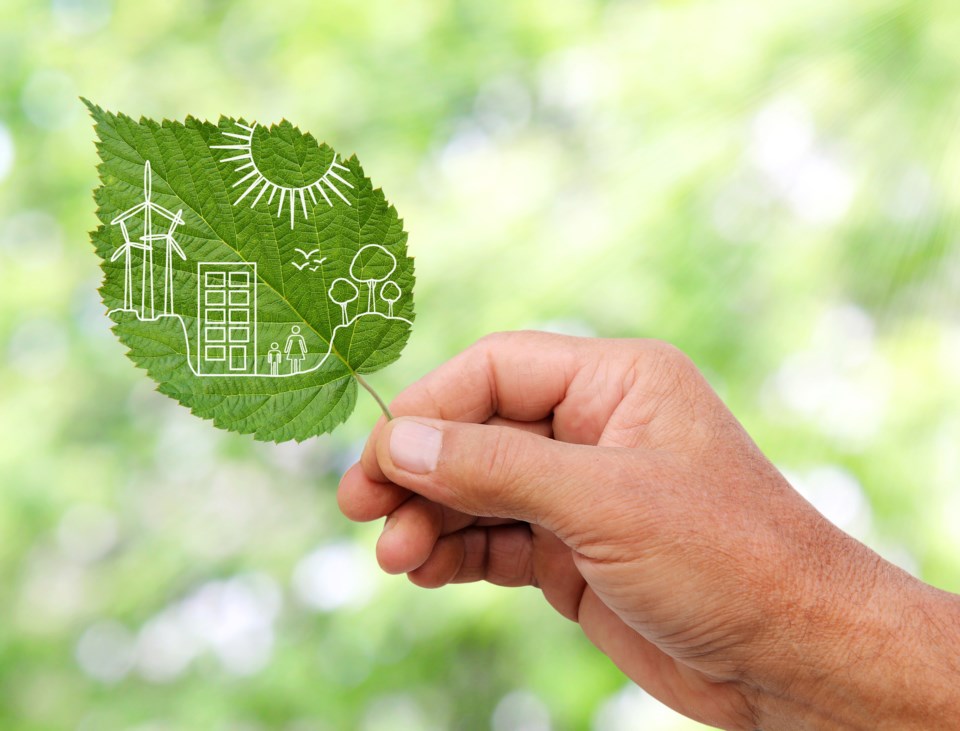What’s your energy story?
Everyone has energy stories, whether they’re about a relative working on an oil rig, a parent teaching a child to turn the lights off or a mid-winter power outage.
When I teach students about energy literacy in my education courses at the University of British Columbia, or in the public workshops I lead as a sustainability fellow at the Centre for Interactive Research on Sustainability, I begin by asking students to talk about their energy stories. People may not realize it at first, but our experiences with energy are integral to the stories that bind us in our human struggles for survival.
By contrast, if I mention climate change, some students shift in their seats and cross their arms. It’s as though they are instantly closed to a discussion.
Many people are shocked when they see how the objects and encounters in their lives are built upon finite and polluting forms of fossil fuel energy (oil, gas, coal). This can range from the clothes we wear and the transport we use to the medical supplies we depend upon.
The challenge we face is transitioning from a fossil fuel-based culture to one built on renewable energy. As our society transitions to new forms of energy, our social and cultural stories will also change.
Words and stories matter
My research in arts and humanities education explores how people experience language and narrative, and how these impact people’s understanding and decisions about their environmental futures.
Whether consciously or not, people draw on the tools of storytelling through language, narrative and imagination to understand problems.
Focusing our communication and language on energy transition could help overcome the social impasse we’ve reached in addressing climate change. Scientists can clearly prove the existential threats of climate change and the link to fossil fuel energy. But they have less success at educating and communicating with specific groups to produce social action.
Part of the reason for this is that climate change has become a weapon in divisive political wars waged over who controls the narrative in media or society. Facts and evidence have yet to sway segments of the public toward effective climate action. Public sentiment often relies more on beliefs reinforced by messaging from corporate lobbyists or political pundits than on evidence.
Making sense of reality
If we start to communicate and educate about energy transition through our interconnecting and overlapping stories, then we could avoid polarizing climate change and publicly shaming those who deny it.
One of the under-used tools in overcoming the impasse involves language and literacy. How can we educate ourselves about the primary cause of climate change — fossil fuel energy — while also collaborating through our overlapping energy stories?
George Lakoff, professor emeritus of cognitive science and linguistics at University of California, Berkeley, has been looking at ways of using language in politics and society for decades. In his books Moral Politics and Don’t Think of an Elephant, Lakoff discusses how the political divide is associated with differing values more than with disagreement over facts and logic.
Based upon cognitive research, Lakoff explains how people see the world in mental structures called frames, and these frames create or make sense of reality. He argues that how we “frame” the environment matters to how people understand it.
Today, the framing of climate change has become heavily associated with ideological frames. Talking about energy might just get us beyond the impasse.
Appreciative inquiry
“Appreciative inquiry” is an educational approach using dialogue and storytelling in a collaborative way. Appreciative inquiry looks at possibilities based upon big-picture thinking by sharing stories instead of critique. Rather than focusing on the deficit model of problem solving, appreciative inquiry encourages listening to other experiences to learn and foster positive growth.
Moving away from abstract concepts of climate change and over to concrete ideas of energy change allows conversations to unfold, particularly those about how we collectively live with energy in our daily lives. People know how much it costs to fill the truck, what the electrical bill costs each month or why we need forms of fuel to cook our food.
Energy stories also involve environmental threats that impact human lives such as through polluted air or water contamination. Energy realities connect to our human stories.
Shifting the conversation
Talking about how energy transition would improve socio-economic conditions for people working in energy sectors could offer a common language across political divides.
Renewable energy can employ people working in Alberta’s oil patch, Scotland’s offshore oil fields or West Virginia’s coal sector. It can also also contribute to local economies and improve public health and the environmental conditions.
Energy transition also increases opportunities of energy sovereignty for Indigenous people and other historically marginalized communities.
In this model of energy transition, people have control over energy sources in ways they often didn’t with fossil fuels. This shift in the story creates sustainable low-carbon futures without erasing people’s histories in the process.
In order to break the gridlock of social division in public discourse, let’s share the story of energy change. Shifting the conversation to energy doesn’t ignore the reality of climate change. It only reframes the story.![]()
Derek Gladwin, Assistant Professor, Language & Literacy Education, and Sustainability Fellow, University of British Columbia
This article is republished from The Conversation under a Creative Commons license. Read the original article.
